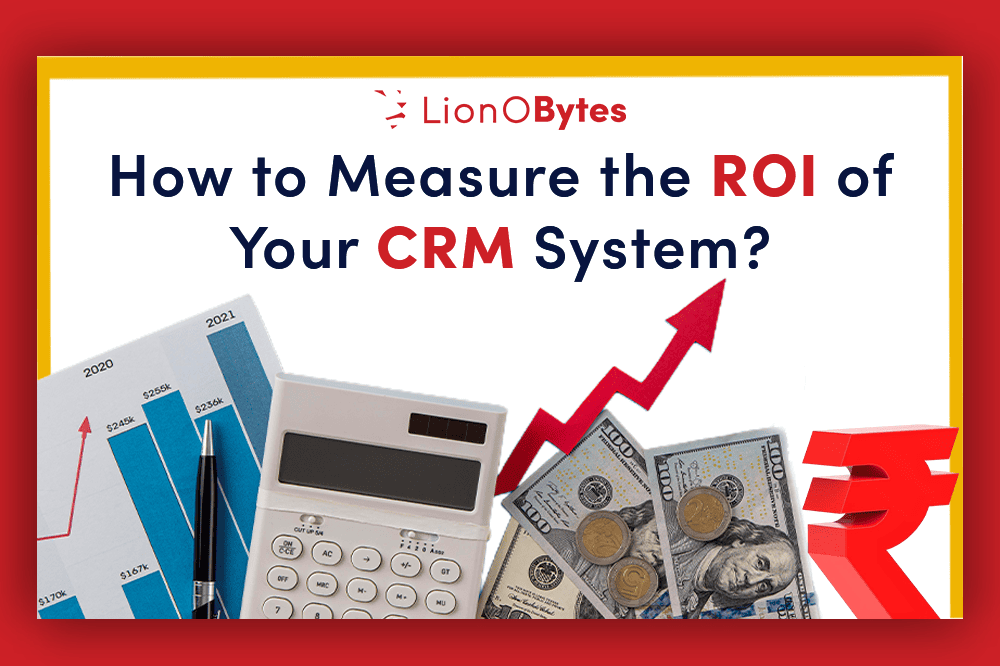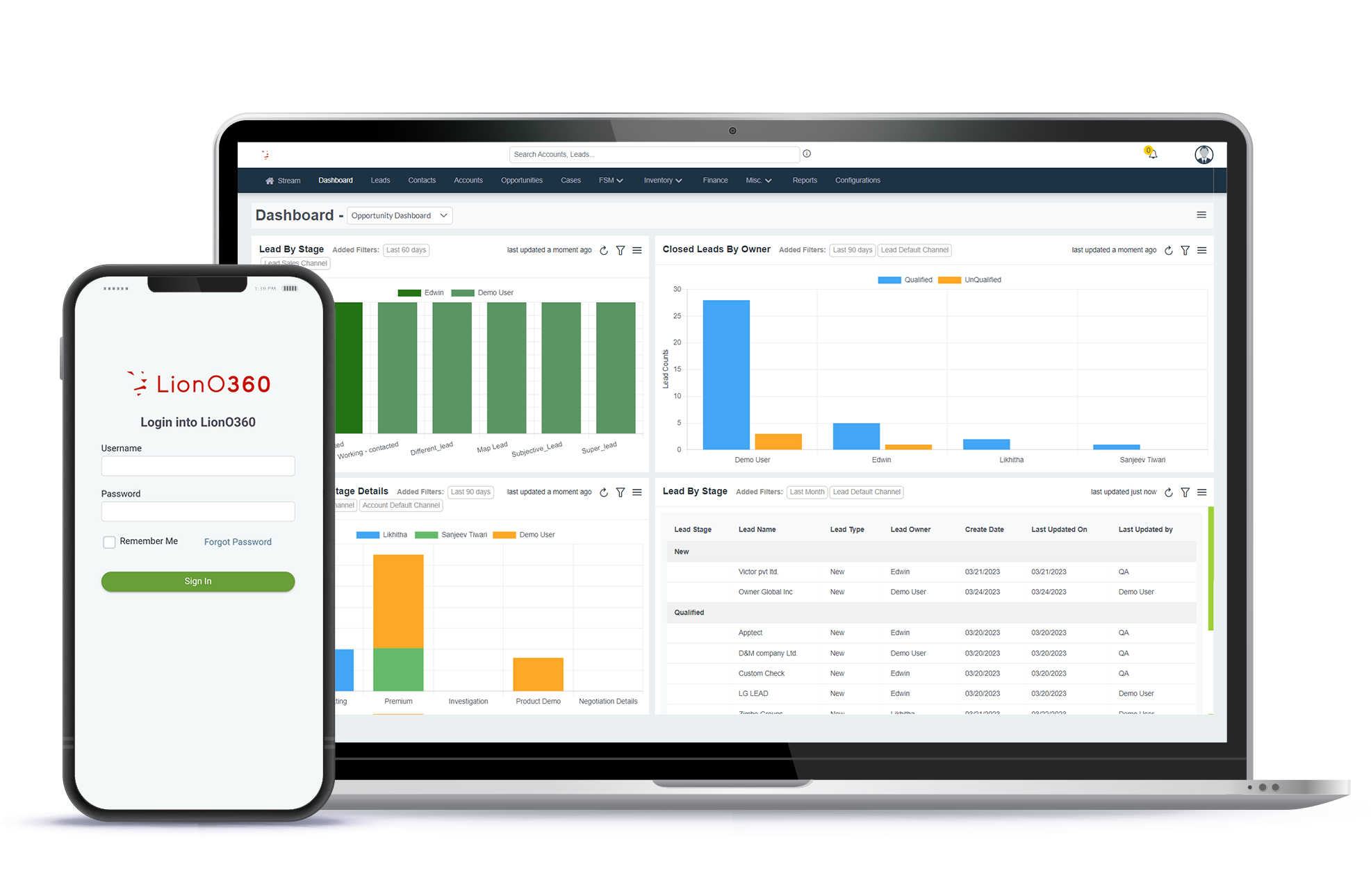
A Customer Relationship Management (CRM) system is at the heart of most modern businesses. It helps organizations manage interactions with current and potential customers, track sales, and streamline communication. However, just implementing a CRM system is not enough. The real challenge lies in measuring how effectively your CRM is helping you achieve business goals, especially when it comes to customer engagement, sales, and overall ROI (Return on Investment).
In this blog post, we will dive deep into how to measure the rate of interest of your CRM system, the key metrics that matter, and practical ways to enhance your CRM’s performance. We will also explore how LionOBytes CRM is helping businesses improve their ROI, making it a valuable tool for growth.
What is the Rate of Interest of a CRM System?
The rate of interest of a CRM system refers to how effectively it captures, engages, and retains the attention of its users — primarily your sales team, marketing team, and ultimately, your customers. It’s not just about how many people are using your CRM, but how well it’s contributing to your business success by improving sales, customer service, and relationships.
Key Indicators to Measure the Rate of Interest of Your CRM System
When assessing the effectiveness of your CRM, it's important to focus on a few key metrics that provide actionable insights into its performance. Here are some of the most significant ones:
1. User Engagement and Adoption Rates
One of the first metrics you should measure is user adoption. If your team is not using the CRM to its full potential, it’s a clear indicator that your CRM system might not be as effective as it could be. High user engagement and adoption rates are essential for realizing the full value of the CRM.
How to Measure:
- Logins and Usage Frequency: Track how often employees log in and how frequently they use various features.
- Feature Adoption: Look at how often specific features (like lead tracking, email integration, or customer feedback tools) are used.
How to Improve:
- Training: Ensure that your team fully understands the CRM’s features. Organize regular training sessions.
- Customization: Adapt the CRM system to your specific business needs, making it easier for users to integrate it into their daily workflow.
2. Customer Engagement and Satisfaction
The ultimate goal of any CRM system is to help you better engage with customers and improve satisfaction levels. To measure the success of your CRM in this area, you should look at metrics such as customer retention, response times, and customer feedback.
How to Measure:
- Net Promoter Score (NPS): This metric tells you how likely your customers are to recommend your business to others, giving you an idea of how engaged they are with your services or products.
- Customer Satisfaction Surveys: Periodically collect feedback from your customers to understand their experience with your CRM-driven processes.
How to Improve:
- Personalization: Use the data collected by the CRM to offer personalized experiences to your customers.
- Automated Follow-ups: Implement automated follow-ups after purchases or customer interactions to improve satisfaction and retention.
3. Sales Performance Metrics
CRM systems are also vital for sales teams. One of the primary reasons businesses invest in CRM systems is to boost sales efficiency and performance. Monitoring sales KPIs (Key Performance Indicators) is critical to determining how well your CRM is contributing to business growth.
How to Measure:
- Sales Conversion Rate: Track how many leads are converted into actual sales.
- Sales Cycle Length: Measure how long it takes for a lead to move from the first touch to closing the deal.
- Lead Response Time: Monitor how quickly your team responds to new leads and inquiries.
How to Improve:
- Automated Lead Scoring: Use your CRM to assign scores to leads based on their likelihood of conversion, helping your sales team focus on the most promising opportunities.
- Pipeline Management: Organize your leads and deals into clear stages so that your team can effectively move them through the sales funnel.
4. Data Quality and Accuracy
The accuracy of data in your CRM system is critical. Poor data quality can lead to bad decisions and missed opportunities. You need to ensure that the information in your CRM is reliable and accurate, as it directly influences your marketing strategies, sales outreach, and customer service.
How to Measure:
- Data Cleanliness: Regularly check for duplicate records, outdated contact information, or missing details.
- CRM Updates: Track how often and how well the data in your CRM is updated.
How to Improve:
- Data Maintenance: Regularly audit and clean your CRM data to ensure its accuracy.
- Integrations: Integrate your CRM with other tools (email marketing platforms, social media tools, etc.) to automatically keep data updated.
5. Return on Investment (ROI)
Ultimately, a CRM system should help you increase your bottom line. The ROI of your CRM can be assessed by measuring how much your CRM investment has led to increases in sales, improved customer retention, and reduced costs.
How to Measure:
- Revenue Growth: Track how much your CRM has contributed to an increase in revenue over time.
- Cost Reduction: Measure how much you have saved through better efficiency and automation.
- Customer Lifetime Value (CLV): This metric shows how much revenue a customer generates over their lifetime with your company.
How to Improve:
- Sales Automation: Automate repetitive tasks such as sending follow-up emails or scheduling calls to improve efficiency and reduce costs.
- Upsell and Cross-Sell Strategies: Use your CRM data to identify opportunities for upselling or cross-selling to existing customers.
How to Improve the Rate of Interest in Your CRM System
Now that we’ve discussed the metrics to measure your CRM system’s performance, let’s look at ways to improve the rate of interest in your CRM. These steps will help enhance user adoption, customer satisfaction, sales performance, and ultimately, ROI.
1. Ensure Seamless Integration
A CRM system needs to integrate smoothly with the other tools your business uses, such as email, marketing automation, and project management software. When these systems work together, your team can streamline workflows, and data is automatically synchronized.
2. Focus on User-Centric Design
Make sure that your CRM system is user-friendly and intuitive. A system that is difficult to navigate can lead to low adoption rates and frustrated employees. Invest time in customizing the CRM interface to suit the needs of your team.
3. Offer Consistent Training
Don’t let your team fall behind when it comes to CRM usage. Regular training on new features, best practices, and advanced functionalities will help them use the system to its full potential.
4. Track and Reward Performance
Use the CRM to set goals for your sales and marketing teams. When they reach their targets, they offer rewards or incentives. This will help keep them motivated to use the CRM more effectively.
5. Leverage CRM Analytics
Most CRM systems come with built-in analytics tools that can provide valuable insights. Use these tools to track performance, identify trends, and uncover areas for improvement. Regularly assess how your CRM is performing against your business goals.
How LionOBytes CRM is Helping Your Business Enhance ROI

LionOBytes offers an all-in-one CRM solution that goes beyond just managing customer relationships. With its powerful features and user-friendly interface, LionOBytes helps businesses streamline their operations, improve sales processes, and enhance customer engagement, resulting in higher ROI. Here’s how LionOBytes CRM is making a difference:
1. Sales Automation
LionOBytes CRM automates key sales processes, including lead scoring, follow-ups, and reminders. This saves valuable time for sales teams, allowing them to focus on closing deals rather than performing repetitive tasks. By automating sales workflows, businesses experience improved sales cycle times and higher conversion rates.
2. Advanced Analytics
The built-in analytics tools help businesses track and analyze key performance metrics, including customer acquisition costs, lead conversion rates, and sales pipeline health. These insights help businesses make data-driven decisions to optimize their sales and marketing strategies, ultimately boosting ROI.
3. Customizable Features
LionOBytes CRM is designed to meet the unique needs of your business. Whether you are in retail, B2B sales, or any other industry, LionOBytes can be tailored to your specific requirements. This customization helps businesses get the most out of their CRM investment.
4. Customer Engagement
With features such as personalized email marketing campaigns, customer feedback management, and automation, LionOBytes CRM helps businesses engage with customers on a deeper level. This leads to higher customer satisfaction, better retention rates, and increased lifetime value — all of which contribute to a stronger ROI.
5. Seamless Integration
LionOBytes CRM integrates seamlessly with other popular tools like email platforms, social media networks, and project management tools. This ensures that your team can access all the information they need in one place, resulting in improved collaboration and efficiency.
Frequently Asked Questions
What is the purpose of a CRM system?
A CRM system helps businesses manage interactions with customers, track sales, and streamline communication. It centralizes customer information, improving decision-making and customer engagement.
How do I measure CRM effectiveness?
You can measure CRM effectiveness by tracking user engagement, customer satisfaction, sales performance, data quality, and ROI. Regularly evaluate these metrics to determine the value your CRM brings to your business.
What are the key features of a good CRM system?
A good CRM system should have features such as sales automation, lead management, customer engagement tools, customizable dashboards, and integration capabilities with other business tools.













